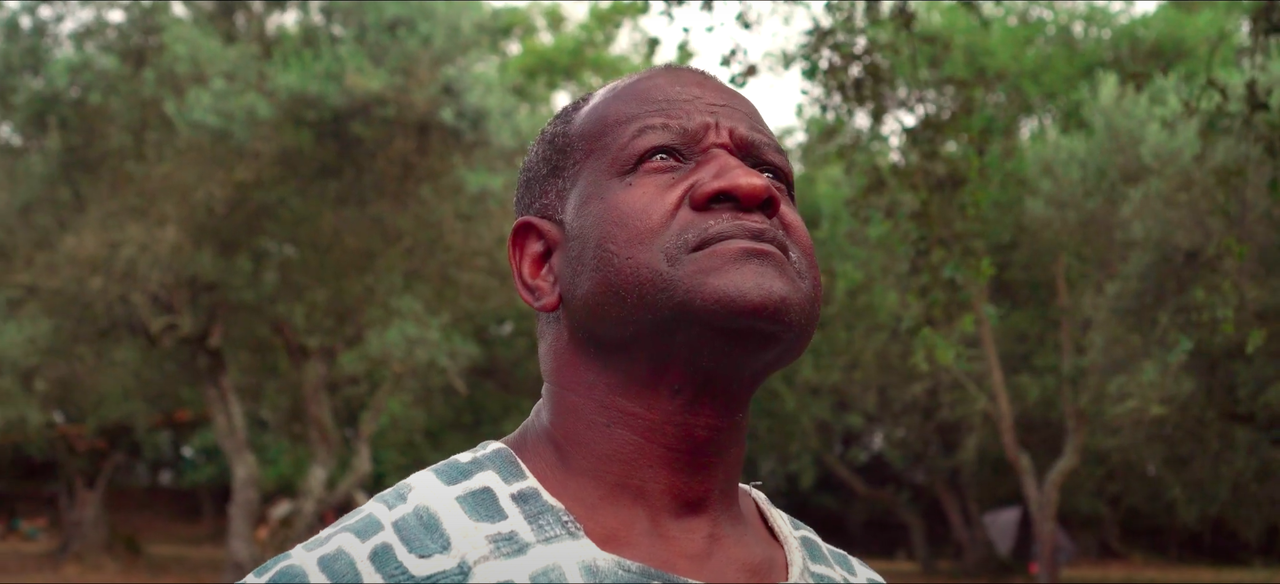The role of eldership in regenerative transformation
When Konkankoh first arrived in Portugal from Cameroon, he was carrying seeds.
As an initiated elder of the Bafut kingdom of Cameroon and the founder of several social and ecological projects, Konkankoh has many decades of experience building regenerative organisations founded in indigenous wisdom and traditional ecological knowledge. In 2015 the Bafut Permaculture Ecovillage, which he co-founded with his NGO Better Way Cameroon, won the Gaia Trust Excellence Award as the most inspiring project roadmap to sustainable development on the African continent. It has also been recognised on the UN Sustainable Development Goals platform.
Among the seeds that Konkankoh brought with him to Europe was this vision for a regenerative and indigenous approach to sustainable transition, rooted in the wisdom imparted by his elders in Bafut. Since arriving in Europe as a refugee several years ago, he has been instrumental in the founding of two European-based organisations which aim to share African regenerative culture, as well as co-create economically and socially just sustainable solutions to global challenges; the African Way Association and Indigenous and Modern.
“We call on our ancestors to ensure that we are doing things in a way that life will be sustainable in the future.”
Over a Zoom call, Konkankoh describes how he was born into a lineage which meant that he would be initiated into eldership, a form of leadership which entails a position of responsibility for future generations. “Our customs require that the women, the men and the youth, even the children and the unborn are included in decision making,” he says. “We call on our ancestors to ensure that we are doing things in a way that life will be sustainable in the future.” He explains that when this cyclical relationship between ancestors, elders and the unborn is broken, it is symptomatic of being cut off from nature itself, and therefore in order to heal the story of separation it is important to integrate this aspect into sustainable solutions. “The missing element of the SDGs is that they don't integrate the culture of indigenous peoples, their beliefs and their local indigenous systems,” he says.
The need for a decolonial approach
Like many African nations, Cameroon is one with a long and turbulent history of European colonisation. First occupied by Germans in the 19th Century, the administration of the country was passed to the British and the French at the end of World War I, when the country was divided into Anglophone and Francophone regions. Successive colonial governments attempted to eradicate traditional knowledge and practices, which were seen as “primitive” or “pagan” in the Christian imagination. Today Cameroon finds itself in the midst of a war, known as the Anglophone Crisis, which is a direct result of this history of colonisation and the ways in which the colonisers sowed division between the minority Anglophone and majority Francophone population.
“This is how my joy was taken away from me, because instead of just living and being able to enjoy the world as it is, I was exposed to colonisation which invaded our culture,” explains Konkankoh. He shares how from a young age, he found himself torn between the Western concept of modernity and preserving his cultural identity; first as a schoolboy converting to Christianity against the advice of his elders in order to be able to pursue a school education, and today as a refugee in Portugal working to bring indigenous perspectives to the sustainability field, despite being uprooted from the cultural traditions and heritage of his homeland.
“Little did I know that I would be given the Herculean task of making sure that the knowledge and traditions that I was initiated into would live on,” he says.
It’s important to develop business models that work to level the playing field by integrating reparative justice and moving beyond aid into genuinely reparative relationships and collaborations.
Konkankoh and I speak about how the problem of ecosystemic destruction is largely being driven by business forces, and the challenge this presents to an organisation like Regenerators seeking to promote a more regenerative approach to business and leadership. As Laura Storm and Giles Hutchins say in their book, at its core Regenerative Leadership is indigenous leadership, and it’s becoming increasingly common for those in the climate and sustainability field to look to indigenous social and cultural technologies as a solution to the degenerative spiral we find ourselves in. But as Konkankoh points out, these kinds of relationships must go beyond tokenising indigenous people or outsourcing the responsibility for making changes to those who are least responsible, especially as many of the same communities are still experiencing the repercussions of colonialism and displacement. “If you look at somebody like myself, a cultural person who was rooted, if you uproot that tree and throw it in the desert, what do you expect of that tree?” he asks. Given this, it’s important to develop business models that work to level the playing field by integrating reparative justice and moving beyond aid into genuinely reparative relationships and collaborations.
How can we help each other to see the fuller picture, and create truly collaborative partnerships? Recording from a Regenerators session on building South-North Partnerships.
Fostering South-North Partnerships
Towards the end of our conversation Konkankoh shares his call to action for Westerners to foster transformative partnerships built on mutual trust and a shared commitment to innovative, holistic solutions coming from both sides, something he calls “South-North Partnerships”. “Many people in the business world today preach concepts like Ubuntu without actually understanding what they are,” he says. “Corporates should actually be able to talk to grassroots people, and be able to put a finger on what this indigenous wisdom is all about.”
“There is a need for common curriculums of training that are developed from both sides. Co-creating is challenging, but if you put all the people from different backgrounds into an alignment, then they can start to breathe with the same rhythm.”
The question is, are we Westerners ready to do the work it takes to engage in such partnerships? Especially when it comes to confronting the lingering legacies of colonialism and the deep-rooted worldviews and beliefs that were developed during that period, and that still form the operating code of many powerful and influential institutions and organisations in the world today.
Recently Konkankoh has branched into consultancy, offering indigenous wisdom and the opportunity to learn from the regenerative principles that he has nurtured over his life’s work to organisations seeking to be more regenerative. Ultimately, however, he wishes to focus his efforts on the grassroots and community-level work that has always been his passion, and that he believes is the true locus of change. With so much work today being carried out online, he shares how he has noticed that technology can help to build bridges, especially with his close collaborators now scattered all over the world, but it can also be a distraction preventing people from developing a deeper connection to land and place.
“The house is on fire and we just talk about it,” he says. “This is not where my energy is, my energy is in real hands on work, doing something concrete.”
The vision for the future for the African Way NGO is to reconstruct the Bafut Ecovillage and establish a similar project in Portugal where volunteers can learn permaculture the African way; a hub for building the South-North partnerships that may have the potential to unlock equitable and sustainable transition in different bioregions across the world.
Words by Tarn Rodgers Johns.

